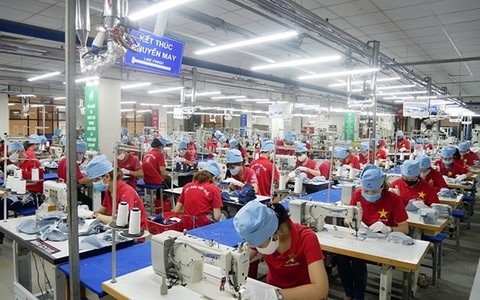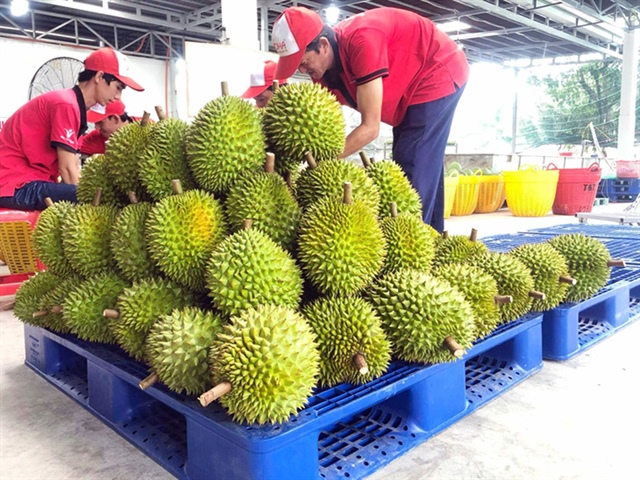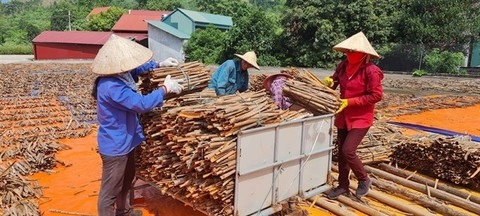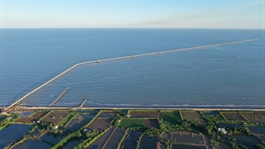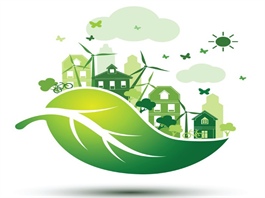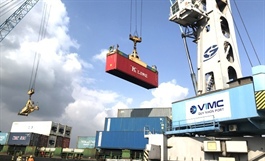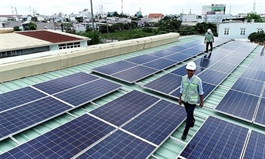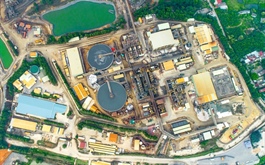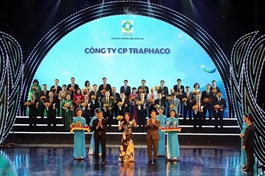Vietnam, ASEAN share smart energy ideas for urban development
Vietnam, ASEAN share smart energy ideas for urban development
As smart energy plays an important role in urban development, Vietnam plans to develop smarter, cleaner, greener and more sustainable energy resources for its cities, said experts at a recent summit in Hanoi devoted to sharing initiatives, experiences and cooperation between Vietnamese cities and other urban centers in the Association of Southeast Asian Nations (ASEAN).
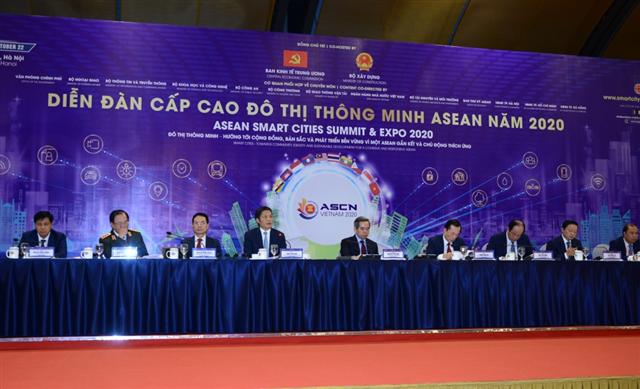
Minister of Industry and Trade Tran Tuan Anh (fourth from the left) addresses the ASEAN Smart Cities Network High-Level Forum 2020 in Hanoi
|
Legal framework improvement
Smart energy development is gradually changing the traditional energy industry, creating new and renewable energy sources while ensuring energy efficiency.
Speaking at the October 22 ASEAN Smart Cities Network High-Level Forum held in Hanoi, Nguyen Cao Luc, Vice Chair of the Government Office, said that following Politburo Resolution 55-NQ/TW on national energy development to 2030 with a vision up to 2045, energy efficiency and environmental protection must be considered an important national policy and the responsibility of all society. Vietnam is developing the energy sector to minimize greenhouse gas emissions, promote the circular economy and sustainable development, and at the same time improve energy efficiency and develop smart energy in urban areas.
“Cities consume 70 percent of global energy and are also responsible for 70 percent of pollutant emissions. Therefore, moving towards a smarter, cleaner, greener and more sustainable city depends a lot on how we use energy in the cities,” Luc said.
Minister of Industry and Trade Tran Tuan Anh said smart energy infrastructure development is important for socioeconomic development in general and smart urban area development in particular.
|
Anh said the legal framework has satisfied actual demands for smart energy development, with guidelines stated in Prime Ministerial Decision 1670/QD-TTg (approving a project for smart grid development in Vietnam), Prime Ministerial Decision 279/QD-TTg (approving a national program on electricity demand management), and Prime Ministerial Decision 280/QD-TTg (ratifying a national program for energy efficiency in the 2019-2030 period), among others.
In implementing Politburo Resolution 52/NQ-TW on participating in the Fourth Industrial Revolution (Industry 4.0) and Politburo Resolution 55/NQ-TW, the Ministry of Industry and Trade will continue working with ministries and sectors on regulations and laws to improve the legal frameworks for the energy market and the competitive electricity market, and technical standards and regulations. The ministry will also encourage investment (from different sources) in energy infrastructure development, giving priority to power source, distribution and service development, and diversification of energy sources, especially renewable and clean energy.
The Ministry of Industry and Trade has determined that improvement of the legal framework is of foremost importance for smart energy infrastructure development in Vietnam, Minister Tran Tuan Anh said.
Promoting Industry 4.0 technology application
In the management, administration and implementation of national programs, the Ministry of Industry and Trade will prioritize application of high technologies and Industry 4.0 technologies in energy development.
Specifically, priority will be given to developing rooftop solar power, energy storage systems, application of artificial intelligence (AI) technologies and big data bases in smart grid development, and developing electricity supply and customer services through the application of high and advanced technologies for energy efficiency and electricity demand management related to urban traffic, lighting, and civil projects.
Do Nguyen Hung, Deputy General Director of Schneider Electric Vietnam, said smart grids based on digital transformation and smart devices would be the trend in Vietnam. Hung said energy management software based on cloud computing could help better manage and save electricity in Vietnam.
John Rockhold, Head of the Power and Energy Working Group of the Vietnam Business Forum, mentioned green energy efficiency in urban areas and economic zones. “Investing in smart energy development will be expensive at first, but it will bring benefits in the long run. Specifically, industrial zones with a smart energy environment will increase competition and attract more investment to Vietnam,” he said. At the same time, it will help businesses save costs through renewable energy, help raise GDP (gross domestic product), improve the business environment, and meet growing middle class needs, Rockhold added.
According to experts, given Vietnam’s strong urbanization process, there is much need and room for energy investment. According to the tentative 2021-2030 energy plan recently proposed by the Ministry of Industry and Trade, Vietnam would need US$133.3 billion over the next decade to build new power plants and expand its grid. The plan also foresees continued high electricity demand with annual growth rates of 8.6 percent in 2021-2025 and 7.2 percent in the 2026-2030 period.
|
The Ministry of Industry and Trade will take the initiative in developing consistent smart energy systems in compliance with actual development demands in the fields of construction, information and communication technology in order to realize the targets of smart city development in Vietnam and ASEAN as a whole. |




